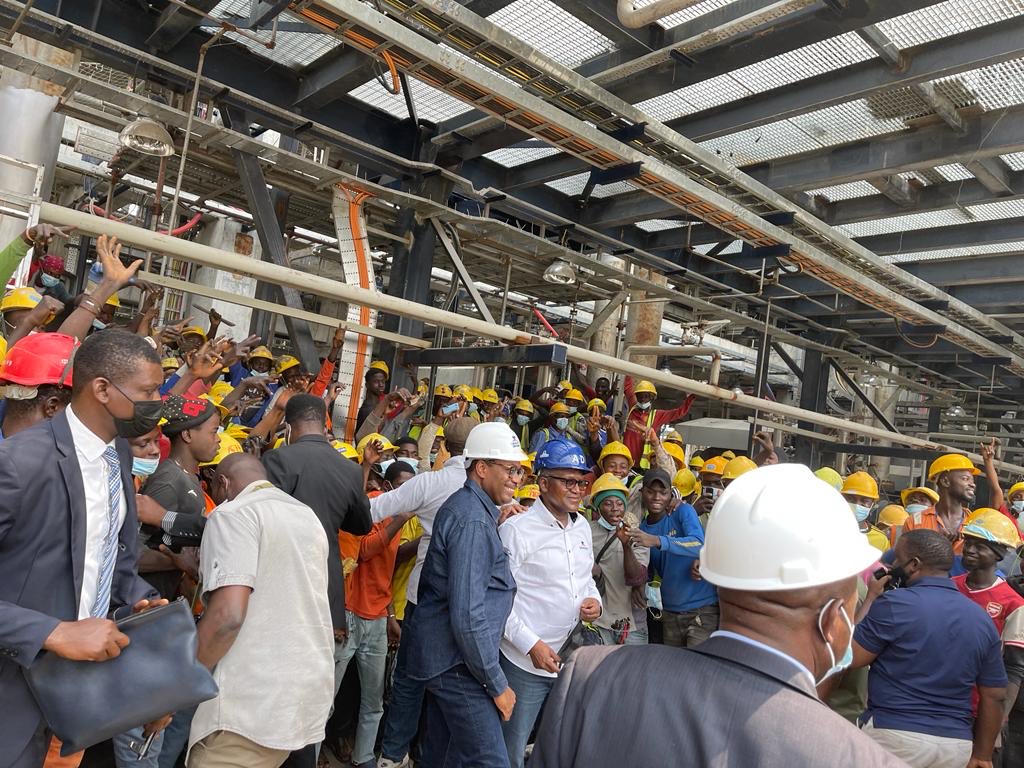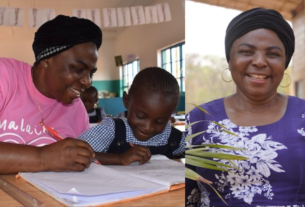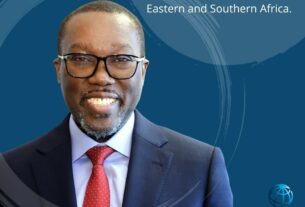Aliko Dangote is completing “Dangote Oil refinery”, his $19.5 billion mega-refinery project, which is expected to begin production by the end of the third trimester of 2022. Since 2020, its commissioning has often been postponed due to delays in the completion of the work with the pandemic.
Aliko Dangote announced the launch of the refinery’s activities on Saturday, January 22, during a press conference held during his visit to the site of the plant in southern Nigeria, in the presence of, among others, the president of the African Development Bank, Akinwumi Adesina, and the Nigerian businessman and philanthropist, Femi Otedola. In 2014, the African Development Bank board had approved a $300 million loan to Dangote Industries Limited to support the construction and operation of the crude oil refinery and fertilizer plant. The two facilities were expected to create 38,000 jobs during construction.
The Dangote oil refinery is being built in the Lekki Free Trade Zone, near Lagos, Nigeria. It is expected to be the largest oil refinery in Africa and the largest single-train facility in the world.
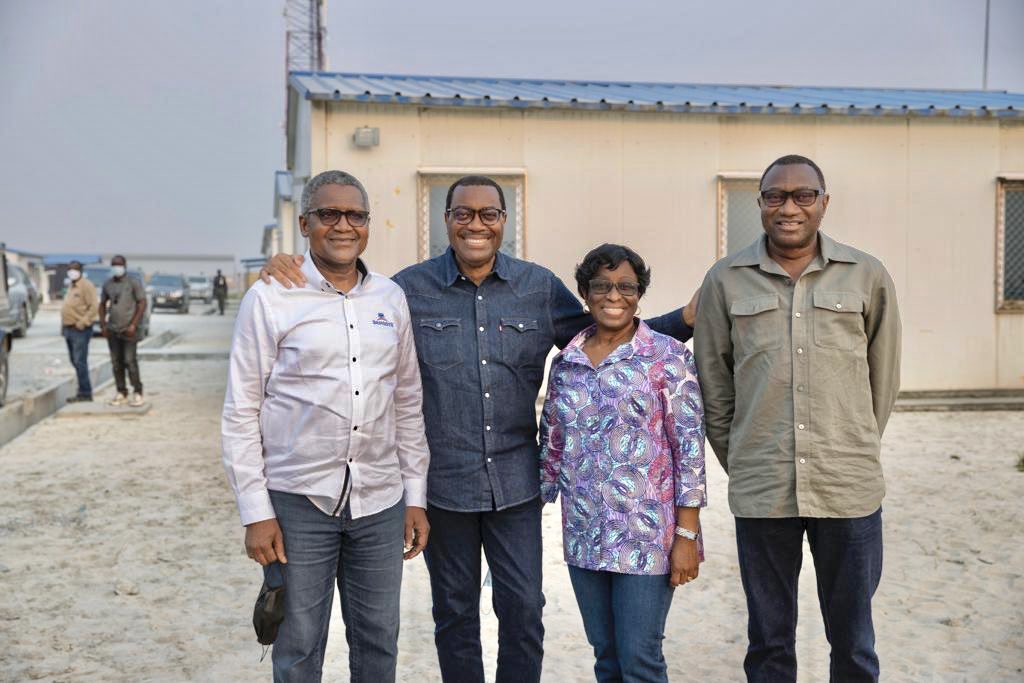
650,000 barrels produced per day
During the visit, Akinwumi Adesina said, “The Dangote Group is a ‘growth gas pedal in Africa…’ I am completely blown away by the scale of what I see here. This is a world-class industrial complex that will make Nigeria and Africa proud. We at the African Development Bank are proud of this project. Every African country must have an Aliko Dangote to help the continent industrialize.
The refinery plans to start producing about 540,000 barrels of oil per day and reach a daily production of 650,000 barrels by early 2023. It is estimated that by 2023, thanks to this refinery, Nigeria will no longer import any petroleum products, whereas it currently imports about $50 billion worth of petroleum products per year. According to the African Petroleum Producers’ Organization, APPO, this plant is expected to reduce the continent’s oil import demand to 36% from 43% today.
Moreover, the refinery has been ranked among the 20 most influential projects studied in the last 18 months by the renowned Project Management Institute (PMI) for its potential to fuel Nigeria’s economic transformation from an importer to a self-sufficient oil refining power.
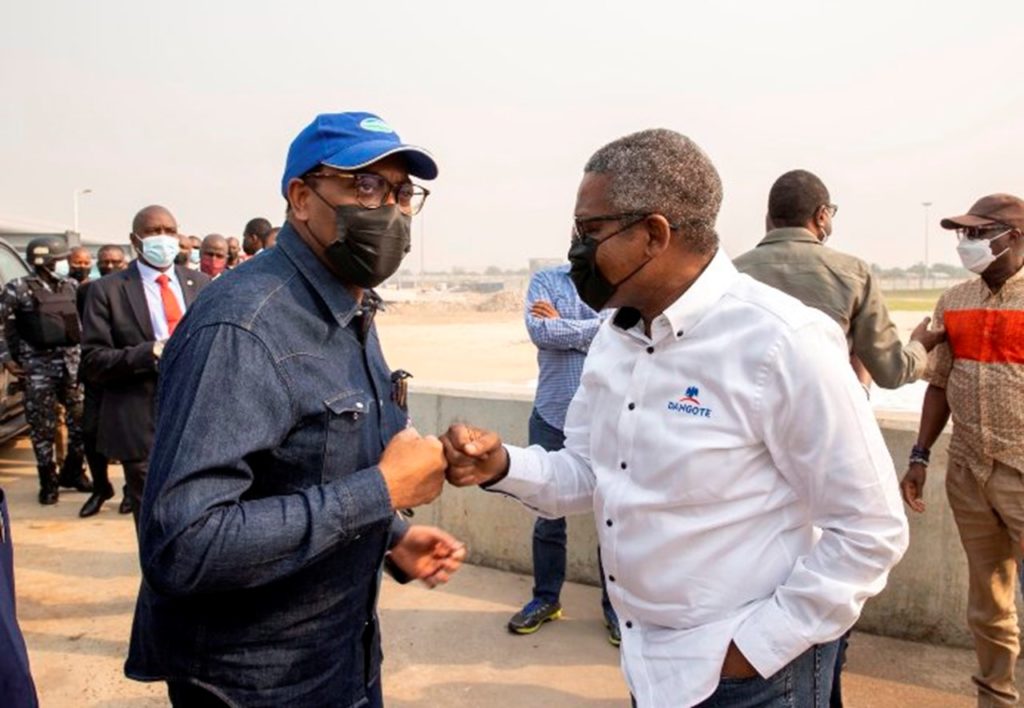
The refinery covers an area of approximately 2,635 hectares, six times the size of Victoria Island, one of the business districts located southeast of Lagos, Nigeria, in the Lekki Peninsula.
The refinery’s pipeline infrastructure, Dangote says, is the largest in the world, with 1,100 kilometers capable of handling 3 billion standard cubic feet of gas per day. The refinery alone has a 400 MW power plant. In addition, it is explained, the refinery will meet 100% of Nigeria’s refined product needs and will also have a surplus of each of these products for export. Moreover, the group says, the refinery will create an $11 billion a year market for Nigerian crude. It is designed to process Nigerian crude with the capacity to process other crudes as well.
In addition, the refinery includes a 440-million-liter water treatment tank farm and a housing complex built for 50,000 employees and their families at the site.
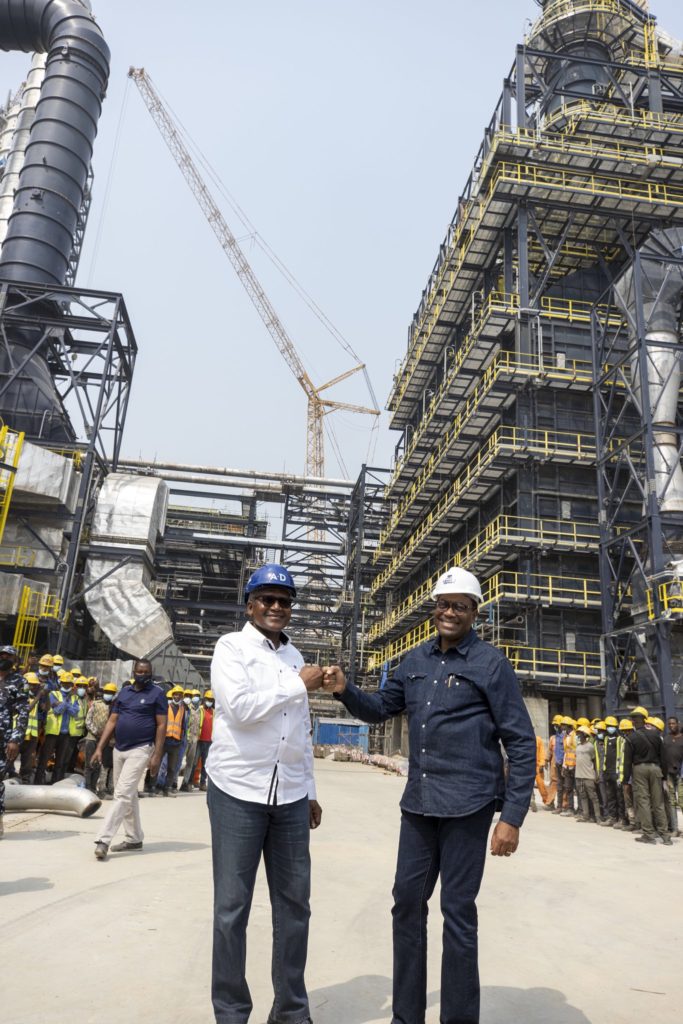
Largest fertilizer plant
In addition, the Dangote Group has the world’s largest urea-based fertilizer plant, Dangote Fertilizer Limited, which started operations 10 months ago, with a production capacity of 3 million metric tons of fertilizer per year. The investment cost for the materialization of the construction project of this plant is 2.5 billion US dollars. Devakumar Edwin, Dangote Group’s executive director for strategy, investment projects and portfolio development, described the fertilizer plant as “the largest granular urea fertilizer complex in Africa.” He said the fertilizer plant has two production train lines, each producing 2,200 tons of ammonia and 4,000 tons of granular urea per day. The first train was built and deployed in the second quarter of 2021. More than 300,000 tons of urea were produced and sold in the fourth quarter of 2021, primarily to export markets. The second production train is expected to be commissioned in the first quarter of 2022. The plant now makes Nigeria a net exporter of fertilizer.
Africa’s richest man
Aliko Dangote is the founder and president/chief executive of the Dangote Group, the largest conglomerate in West Africa. The Group currently has a presence in 17 African countries and is a market leader in cement on the continent. One of the Group’s subsidiaries, Dangote Cement Plc, is the largest listed company in West Africa and the first Nigerian company to join the Forbes Global 2000 Companies list.
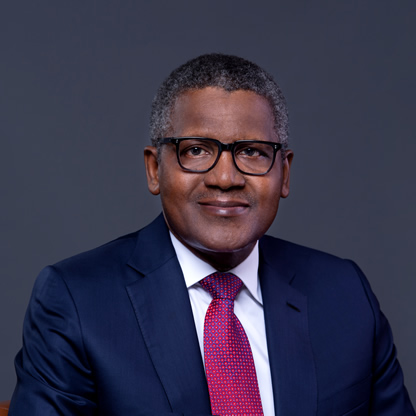
The Group has diversified into other sectors of the Nigerian economy including agriculture and is currently constructing the largest petroleum refinery, petrochemical plant and fertilizer complex in Africa.
Internationally, Dangote sits on the board of the Corporate Council on Africa and is a member of the Steering Committee of the United Nations Secretary-General’s Global Education First Initiative, the Clinton Global Initiative, the McKinsey Advisory Council, and the International Business Council of the World Economic Forum. He was named Co-chair of the US-Africa Business Center, in September 2016, by the US Chamber of Commerce. In April 2017, he joined the Board of Directors of the Clinton Health Access Initiative, which is helping countries build the systems necessary to provide health services to their people.
A dedicated philanthropist, Dangote made an initial endowment of $1.25 billion to the Dangote Foundation in March 2014, enabling it to scale up its work in health, education and economic empowerment. In addition, he is collaborating with the Bill and Melinda Gates Foundation to fight polio. He is also on the Board of ONE, the anti-poverty group, co-founded by Bono.
A graduate of Al-Azahar University in Cairo, Egypt, Dangote began his business career in 1978, trading in rice, sugar and cement, before he ventured into full-scale manufacturing. In 2013, Forbes listed him as the ‘Most Powerful Man in Africa.’ In April 2014, TIME Magazine listed him among its 100 ‘Most Influential People in the World.’ He also made the list of CNBC’s ‘Top 25 Businessmen in the World’ that changed and shaped the century.
